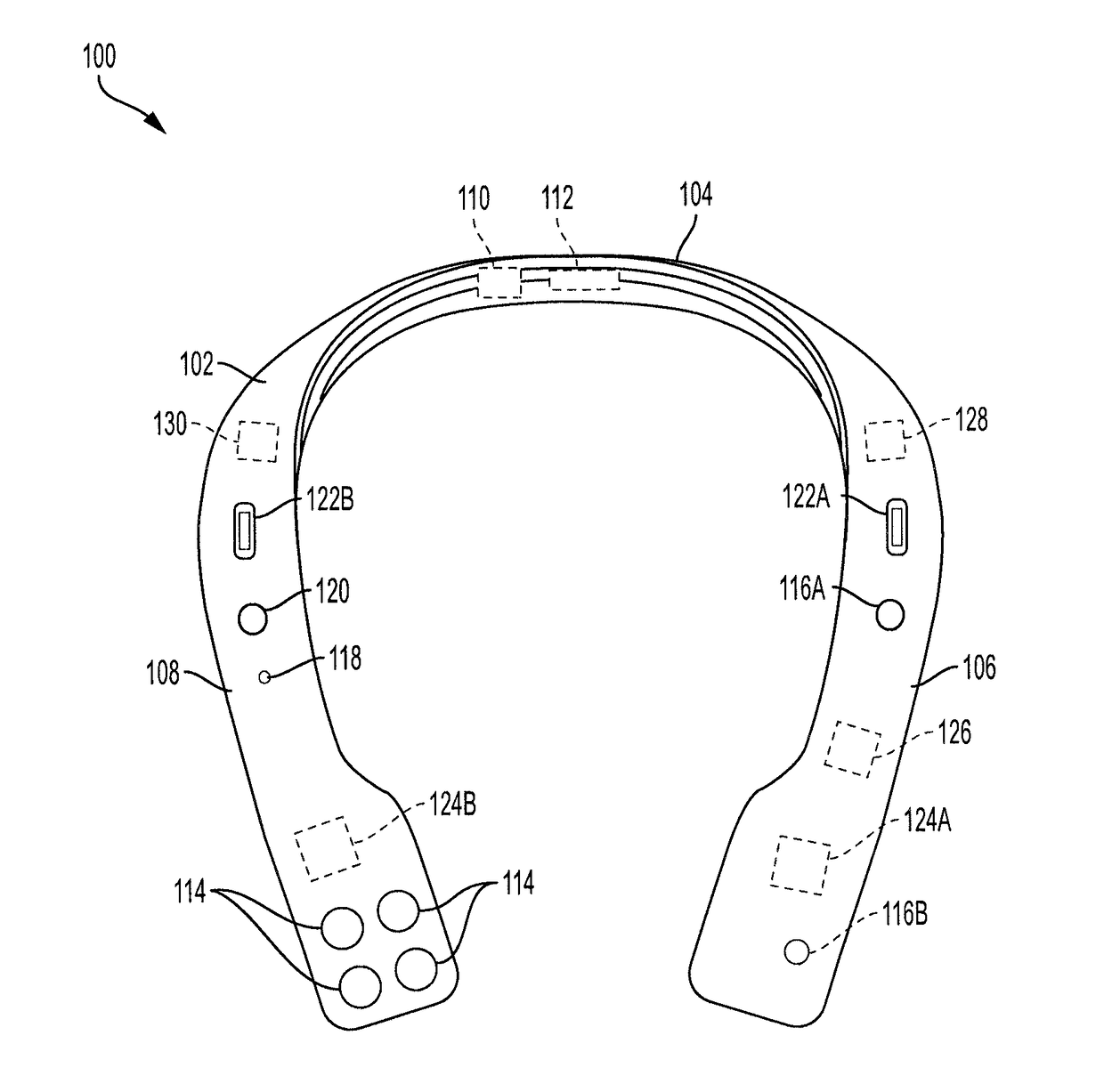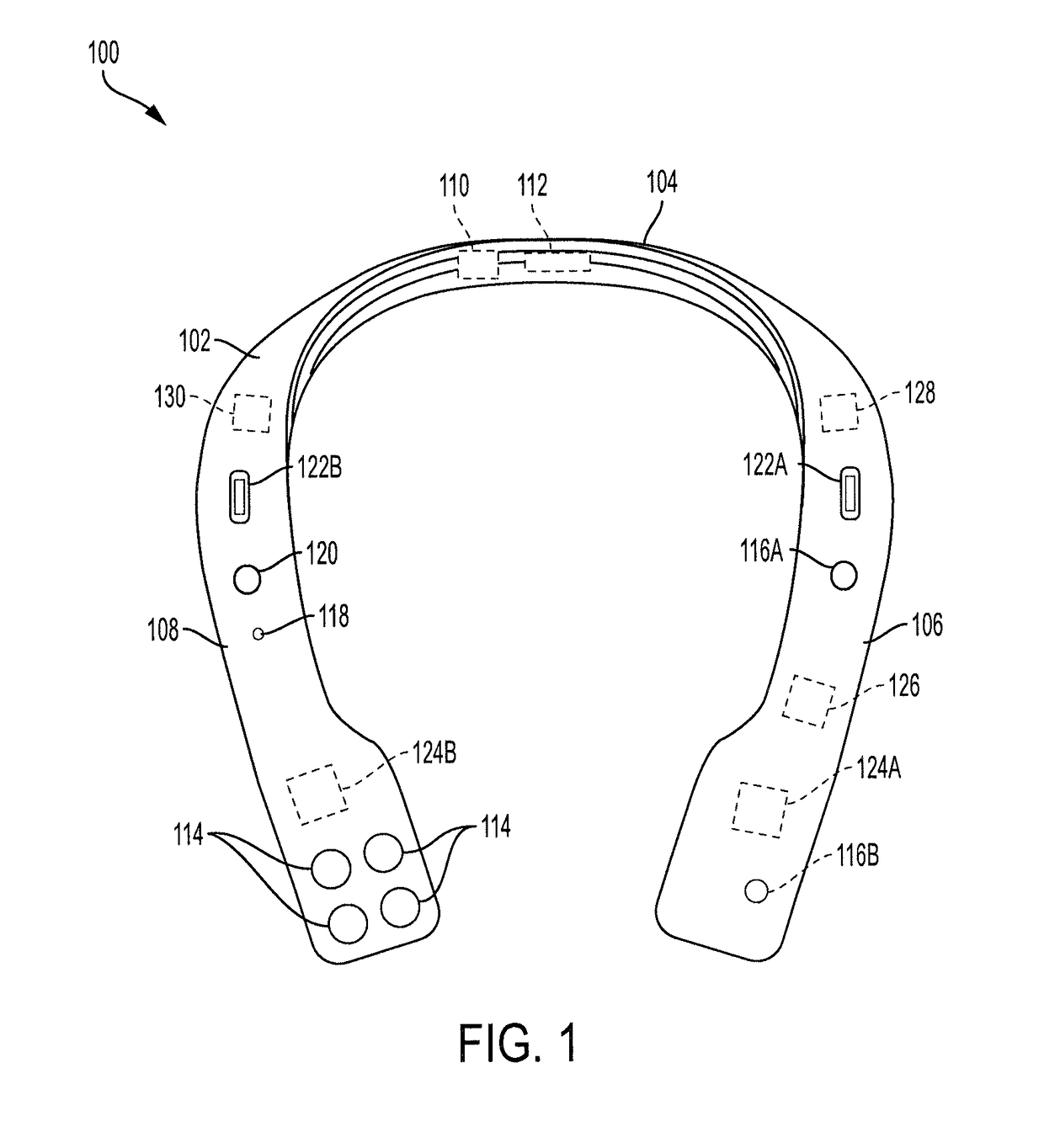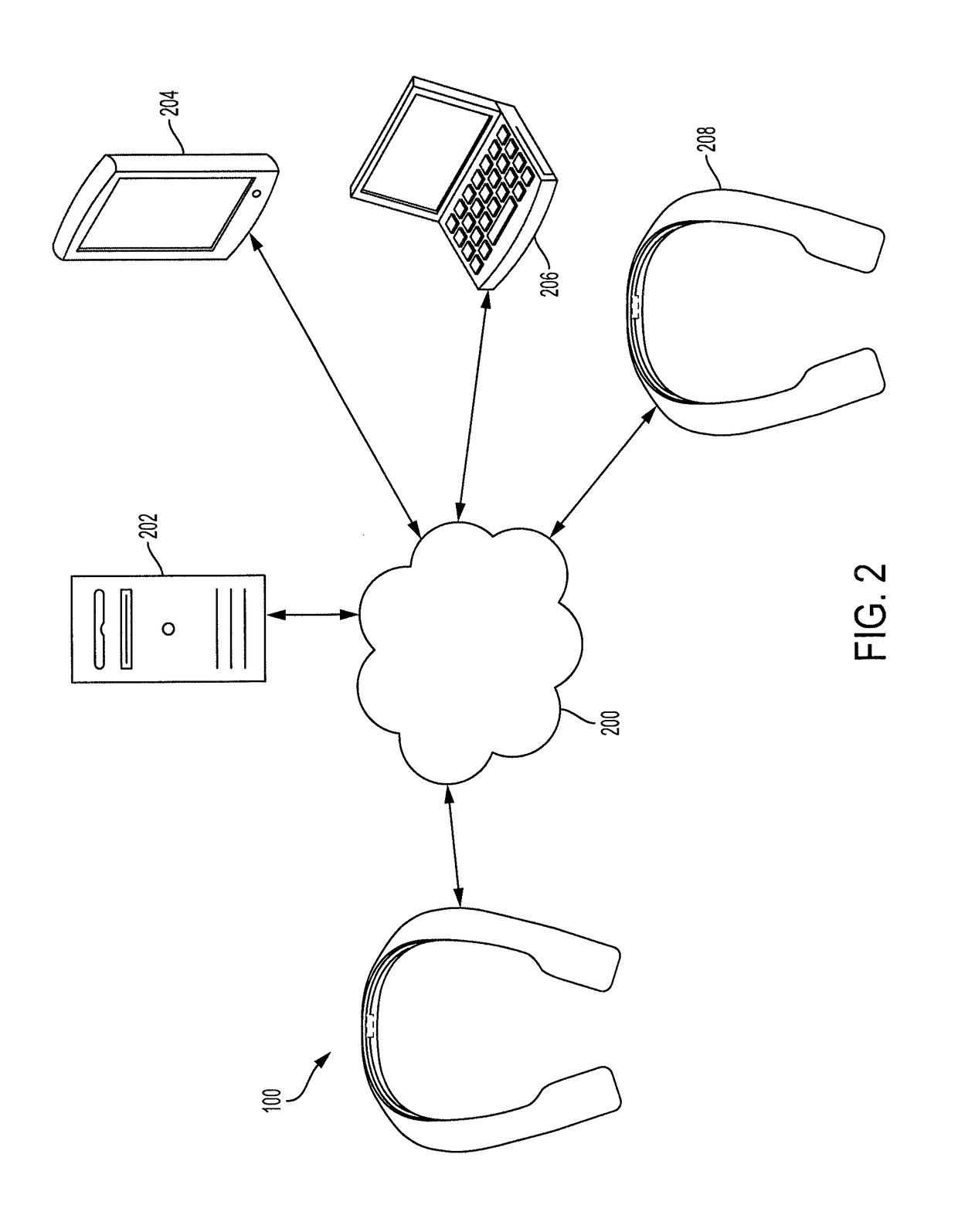Wearable system for providing walking directions
a technology of walking directions and wearable devices, applied in the field of wearable computing devices, can solve the problems of time-consuming, expensive, and labor-intensive, and achieve the effect of reducing labor intensity, improving work efficiency, and improving work efficiency
- Summary
- Abstract
- Description
- Claims
- Application Information
AI Technical Summary
Problems solved by technology
Method used
Image
Examples
Embodiment Construction
[0019]The present invention provides wearable computing devices that can be used to create a database of landmarks and corresponding locations, along with ordered lists of landmarks that each correspond to navigation instructions from a starting location to a destination location. The wearable computing device includes a camera, an inertial measurement unit (IMU), and a global positioning (GPS) sensor. An input device receives user input corresponding to nearby landmarks and an input / output port is used to wirelessly connect the wearable computing device to a database that can be edited. A mobile processor can receive the user input corresponding to the landmarks, detect additional data corresponding to the landmarks, determine a location of each landmark, and store the data and locations in the database. As additional landmarks are detected, the mobile processor may create an ordered list of landmarks that correspond to a route between a starting location and a destination location...
PUM
 Login to View More
Login to View More Abstract
Description
Claims
Application Information
 Login to View More
Login to View More - R&D
- Intellectual Property
- Life Sciences
- Materials
- Tech Scout
- Unparalleled Data Quality
- Higher Quality Content
- 60% Fewer Hallucinations
Browse by: Latest US Patents, China's latest patents, Technical Efficacy Thesaurus, Application Domain, Technology Topic, Popular Technical Reports.
© 2025 PatSnap. All rights reserved.Legal|Privacy policy|Modern Slavery Act Transparency Statement|Sitemap|About US| Contact US: help@patsnap.com



